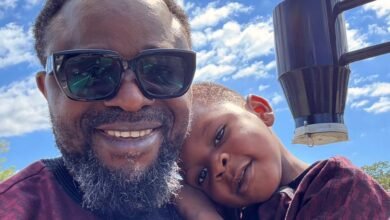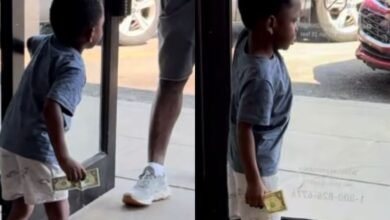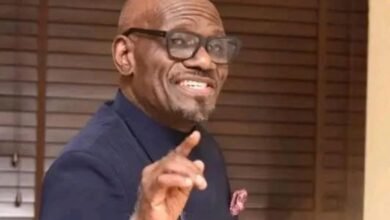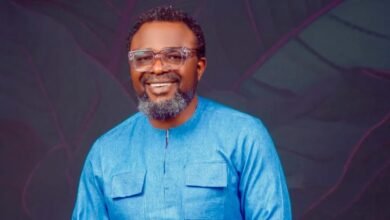Playground Principles: What My Son Taught Me About Discipline and Humanity
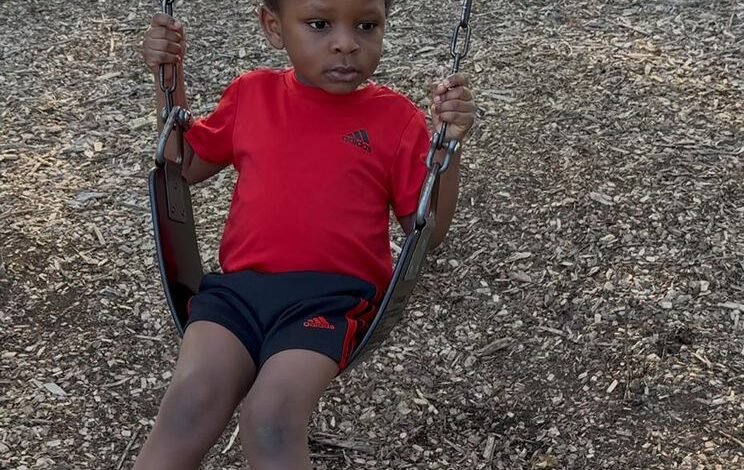
Yesterday, I took Tieri, my 3-year-and-6-month-old son to the playground. It was a joyful outing. He exercised his right to play, and I, as his father and duty-bearer, fulfilled my role: watching over him attentively, ensuring his safety, and allowing him the freedom to explore, take measured risks, and be a child.
But beyond the fun and laughter, two powerful lessons emerged, one recorded, the other remembered.
- “This is supposed to be in the dustbin!”
While playing, Tieri walked up to me with a concerned look and said, “Daddy, they threw these things on the floor.” He was pointing to an empty water bottle, a biscuit wrapper, and a few other items carelessly discarded in one corner of the park.
I followed him. And there, with all the sincerity and moral clarity of a child raised on values, he declared, “This is supposed to be in the dustbin!”
This moment hit me deeply.
We had never scolded him into this behavior. We never needed to enforce it with threats or bribes. What we did was simple: we modeled it. We don’t throw things out of car windows. We don’t litter. We clean up after ourselves, and we make sure he sees it. We say, “Take your wrapper to the bin,” and he does.
Discipline, in its truest form, is not punishment, it is culture. It is modeling. It is what children catch when we think they’re just watching.
And here was my son, recognizing that someone else’s behavior contradicted what we do at home, and he brought it to the custodian of that culture: me. He didn’t just see litter; he saw a violation of principle.
That’s when it struck me: the culture of discipline we build in private becomes our child’s compass in public.
If I had been fully present in that moment, I would have picked up the trash myself and taken it to the dustbin, deepening the lesson, and introducing him to the spirit of community service: that we correct any wrong within our reach, not just as a moral choice, but as a duty to humanity. I didn’t. And that, too, is a lesson, because parenting is not only about the values we model, but also about the moments we miss, and the humility to learn and do better next time.
- No Inhibition. No Discrimination. Just Play.
The playground was a mosaic of humanity, children of different races, colors, and backgrounds. Tieri ran toward them without hesitation. He played with everyone, embracing a boy who looked about his age but was of a different race and color. They laughed, they ran, they bonded like old friends reunited, yet, it was their very first meeting.
It reminded me that discrimination is not instinctive. It is taught.
Children do not carry prejudice in their hearts, they carry curiosity, warmth, and connection. If I had shown hesitation… if the other parent had looked unsure… if there had been even the smallest pause in body language, a seed of division could have been planted.
But nothing of the sort happened. What we saw was the beauty of untainted hearts meeting each other on equal ground.
That moment reaffirmed my belief that the world we hand over to our children will reflect the one we first model before them. Whether it’s how we treat the earth or how we treat each other, our children mirror us.
So, this week, I walked into a playground with my son, and I left with two loud truths echoing in my heart:
- Discipline is not what you do to children. It is what you model for them.
- Discrimination is not a child’s idea. It is an adult’s imposition.
I have a short clip of one of those moments, which I’ll share soon.
The other I carry in memory and conviction. I hope you carry it too.
Let’s raise children who not only play freely, but think clearly, love boldly, and live by values planted and watered by our example.
#IntentionalFatherhood #CultureOfDiscipline #RightToPlay #PowerParenting #ChildRightsAreHumanRights

